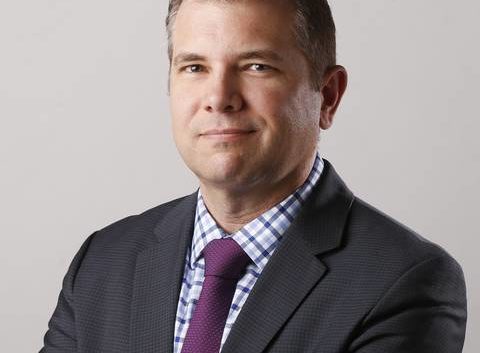- Severe weather leads to fallen trees, car crashes and flooding around the Triangle
- New video shows vehicles being swept away in historic, deadly flash floods in SA on June 12
- $40 million to go to underserved SC counties for Hurricane Helene recovery. Here's what you need to know.
- Family honors Air Force veteran Derwin Anderson Jr. after he died in June flash floods
- City of Wilmington addresses flooding on New Centre Drive
Assessing Game 3’s place in Hurricanes playoff history

Adam Watson of Greensboro cheers on the team before the Carolina Hurricanes’ game against the Washington Capitals at PNC Arena in Raleigh, N.C., Monday, April 15, 2019. ehyman@newsobserver.com
RALEIGH
Amid the unbelievable release of Monday night’s blowout of the Washington Capitals, with one glaring exception an ideal way to put an end to a 10-year playoff drought, it was easy to overrate where that game fits in the Carolina Hurricanes’ sporadic but storied postseason history.
Certainly there were games with more on the line, more drama, more surprising twists, more goals – but had any ever been more needed, at that particular point in time, than a 5-0 win in what has turned out to be a bitter, nasty series?
In the sober light of a few days’ reflection, it’s easier to put Game 3 in its proper historical context, although that remains in flux, depending on what happens in the rest of the series and the rest of the postseason. Indeed, its closest analogue in Hurricanes playoff history seemed reasonably momentous at the time, only to grow exponentially in meaning as time’s arrow flew over the horizon.
That game was another milestone win, the Game 4 overtime win over the New Jersey Devils in 2001 that avoided a potential sweep and helped extend the series to six games. The Hurricanes had lost the first three games of the series and two key players – Shane Willis and Ron Francis – to Scott Stevens hits, not dissimilar from Alex Ovechkin’s knockout of Andrei Svechnikov on Monday, albeit in the open ice.
The ensuing brawls of Game 3 gave way to a tight-checking Game 4, and there was still some water on the ice when overtime began with the score tied 2-2. Sami Kapanen, at the right point shooting toward the Zamboni entrance, had to double-clutch as the puck skidded in a puddle. That gave Rod Brind’Amour time to take up position in front of Martin Brodeur, and the rest is history.
It was the first playoff win at what is now known as PNC Arena and after the Hurricanes went up and won Game 5 at the Meadowlands, they came home for Game 6 and were decidedly outplayed by the eventual Stanley Cup champions. But in the final minute of that game, the crowd rose and gave the home team a standing ovation, the first real bonding moment between team and market after a rough first few years in North Carolina.
Without that ovation and atmosphere, does Brind’Amour re-sign that fall? Do the Hurricanes go to the Stanley Cup finals in 2002? Survive the lockout in 2004? Win the Cup in 2006?
Everything that happened through the final game of the 2011 season, when the Hurricanes’ wave crested and started to recede, only to be rebuilt now, started with Game 4 in 2001.
History may have a similar verdict about Game 3 of this series, or it may not. There’s too much hockey yet to be played, and not just in this series. And there’s too far to go and not enough yet on the line to get into the real pantheon, with the Miracle at Molson and Game 3 of the Detroit series and the Game 7s in 2006 and the Game 7s in 2009.
But having waited that long for that moment, it certainly delivered for a fan base that has endured too much meaningless hockey. Maybe that’s enough to ask.
There have been more important playoff games in the Hurricanes’ history, but few as impactful as Game 4 in 2001. It’s possible that Monday could someday take its place alongside it. It’s probably more likely it won’t. But for a few days, at least, it was nice to imagine it might.